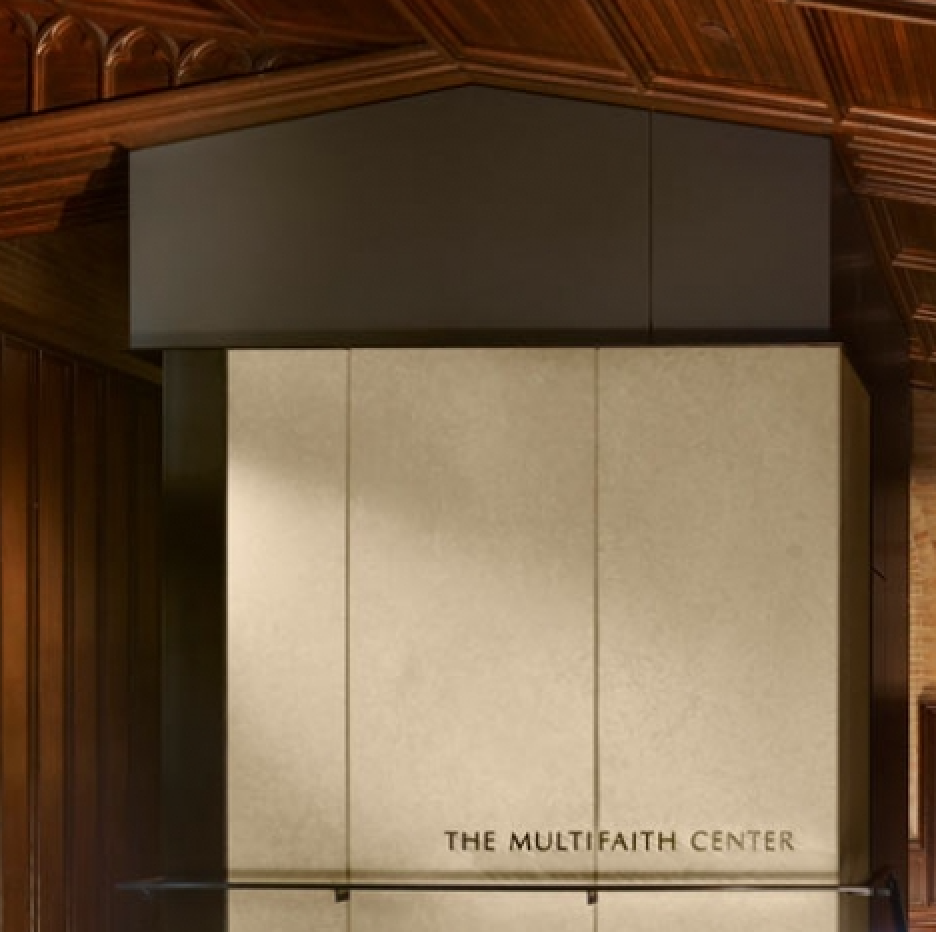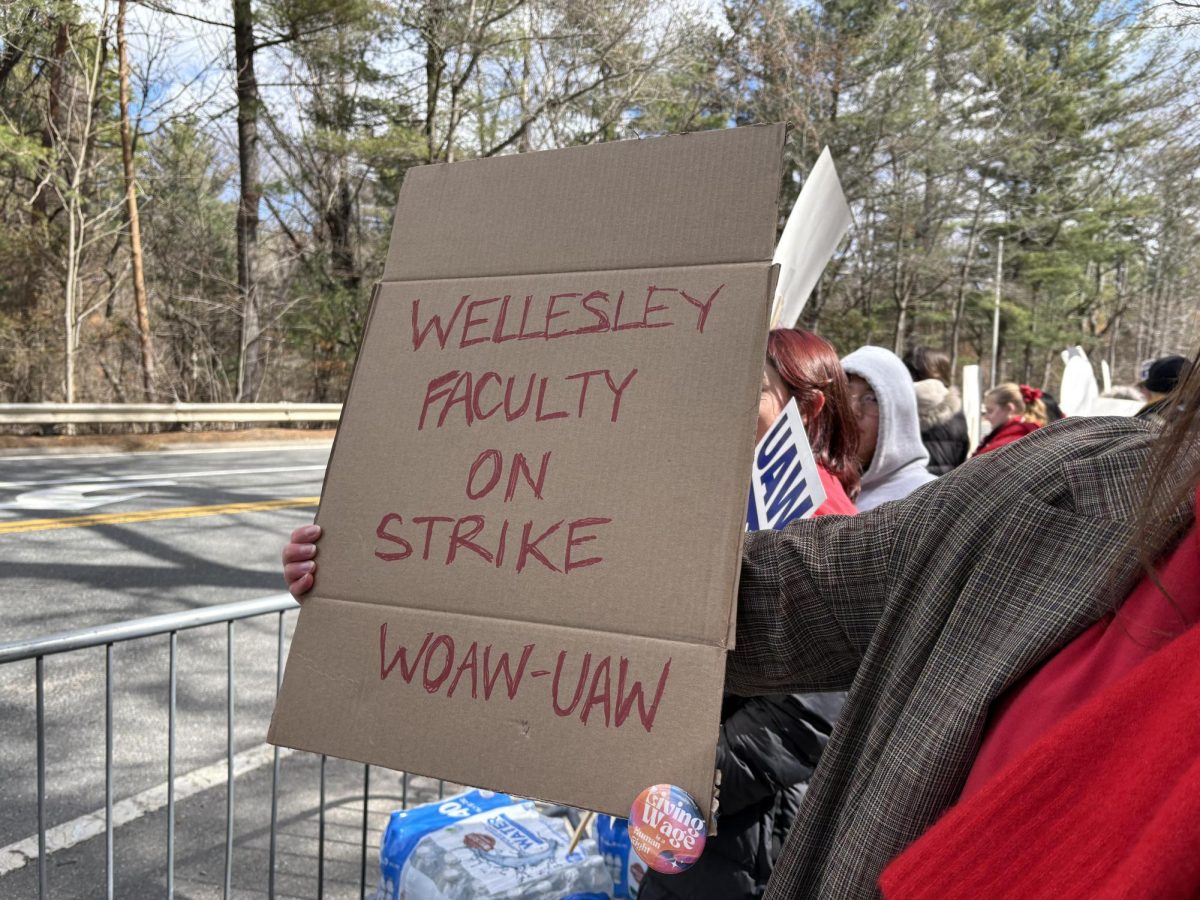Up until the end of the 2018-19 school year, Wellesley’s class schedule included a daily lunch hour, allowing students a set time to eat between courses with their peers. However, when the College updated the schedule for the 2019-20 academic year it removed that lunch hour and replaced it with a weekly community hour on Thursdays from 12:45 to 2:10 p.m. While this change resulted in a loss for the student body as a whole, it affected the Muslim student body in particular.
According to Amira Quraishi, College chaplain and Muslim life coordinator, Muslims pray five times a day, ideally congregationally but with the option for individual prayer. The exception is Juma’h, or Friday Prayers. Quraishi explained that not only is it obligatory for Juma’h to be congregational, but that the prayers are “only held in the early afternoon on Fridays as stipulated by religious law,” so they cannot move it to the community hour. Additionally, many students find the sense of community important for their wellbeing.
“Being [of] a minority religion in America, we’ve seen a lot more women attend mosques for Friday prayers, because they yearn for that community, that congregation,” Quraishi said. “It’s also my perspective that, for every Muslim, it’s an obligation to, wherever you are, maintain and establish the practices, so there is some flexibility, like if you’re traveling … but the obligation is to keep the anchors in place in your life so that A, you stay on the path, and B, you make it possible to connect with others.”
Anushé Sheikh ’22, former president and current co-lecture chair of Al-Muslimat, saw first-hand the difference the schedule made on Juma’h attendance. She estimates that, when students had that time blocked out, 30 would attend, whereas now she sees five to seven. Both Sheikh and Quraishi mentioned that students have to pick between classes and Juma`h.
“I think it’s almost like if you imagine Sunday mass, right? If you have a very religious Christian student, then they can go. But for us, [Juma’h is] our one weekly communal thing,” Sheikh said. “People at the workplace block off that time to go and pray because it’s a communal obligation. It’s just something that now [students] don’t have the option to do, whereas if Wellesley was truly inclusive of all faiths, I think this is a really easy thing they could do.”
According to a statement by Provost Andy Shennan, the schedule change was a process that took four years, “first initiated in 2014 and voted on in Academic Council at the end of 2018.” Provost Shennan said that the College met with members of Al-Muslimat and that “extensive engagement and consultation were key parts of this process.” However, prior Co-President Lyba Khan ’20 felt as if the committee involved in changing the schedule was not receptive when she and fellow presidents Minhal Gardezi ’20 and Sulaikha Buuh ’20 met with them.
“Minhal had spent a long time creating an alternative schedule, and basically that alternative schedule would have the changes that they were trying to make, and it would also give us a lunch block and it would also have community time. She had several alternative schedules,” Khan said. “But when we met with them, they weren’t really receptive, and they were saying that the committee had already met and had already made a decision.”
Khan mentioned that many of the general members at the time were upset by the schedule change since “every other religious group has time off to do their prayers.” Sheikh highlights that while the committee did meet with the presidents, it felt like it was too late.
“By the time students found out, it was already too late for us to advocate for ourselves, and at that point, so many stakeholders had already agreed on it that there was nothing we could do, and we were told that it would be too difficult to change anything,” she said.
However, Khan and Sheikh point out that recent circumstances have shown that the schedule can be changed relatively quickly. While Khan mentioned that each department would have to be involved to change classes and what times professors teach, she noted that if they could change for the pandemic, they could have changed earlier. Sheikh commented on it feeling like a matter of priority.
“When COVID happened we saw how the schedule changed to a term system and that was such a quick, rapid development, so it just kind of proved to us that things could have been done and changes could have been made,” Sheikh said. “It was just a matter of like, ‘Oh, this is not important for us to do.’”
Provost Shennan said the schedule change was necessary due to federal guidelines and was meant to increase flexibility. When Khan and her fellow presidents contacted the committee, they were told the schedule wouldn’t be changed for several years, which Shennan clarified. He said that the class schedule is not planned to change, but there will be a review of the schedule’s effects in 2022-23. He also expands on how the College is trying to keep options open for students.
“We will ask department chairs whenever possible to ensure that classes that are required for a major and only offered once a year would not be scheduled in the Friday lunch hour class block, so that students would not have to choose between an essential class and prayer time,” Provost Shennan said. “We encourage students to talk with their class dean and their major advisors about academic choices when there are conflicting schedules.”
However, major requirement or not, there are still many classes during that block of time. Khan and Sheikh specifically noted laboratories that meet during that time. Quraishi mentioned that not only is there less attendance during Juma’h, but less attendance during the communal lunch, both for Muslim students and the larger student body. Due to this, she had to stop serving lunches for Juma’h, when before she dedicated half an hour to a communal meal and the other half to the actual prayer.
“Before, when there was a lunch [hour], our students would depend on that hour to see their friends, to see people, and if a class ended at 12 they would naturally migrate over to the dining hall,” Quraishi said.
Ilma Aamir ’23, the current president of Al-Muslimat, expressed that the lack of explicitly set aside time for Juma’h is not just a cause for decreased attendance, but is part of a problem many marginalized communities on campus face.
“This problem really repeats itself across marginalized communities at Wellesley, and this is just, I think, yet another issue on that long list of lack of communication and lack of the offer to have input from students from admin,” she said.
Additionally, Aamir and Sheikh commented on the importance of Juma’h for spiritual and social community, which is harder to experience on campus for Muslim students. While Sheikh mentions the accommodations during Ramadan that provide some sense of community, both agreed that Juma’h is being addressed inadequately.
“For a lot of Muslim students, the Friday prayer, the Juma’h time, serves as a really spiritual reprise, a really important time for them to feel that rest and community and togetherness,” Aamir said.
Khan also specifically commented on the unrealistic expectations a lack of lunch hour places on all students, not just Muslim students, referring to workplaces having lunch blocks. She said that this is an issue to fight for, not just in solidarity with Muslim students, but for everyone.
“You should fight for, first of all, a lunch block. You should fight for a longer community time,” she said. “And also, you should fight for the Muslim students who have Juma’h, because every other group on campus … has a dedicated time outside of classes where they are allowed to pray, like the Christian students have, because we live in a world where that’s the dominant religion, they have Sundays, and even at jobs you have Sunday off.”






